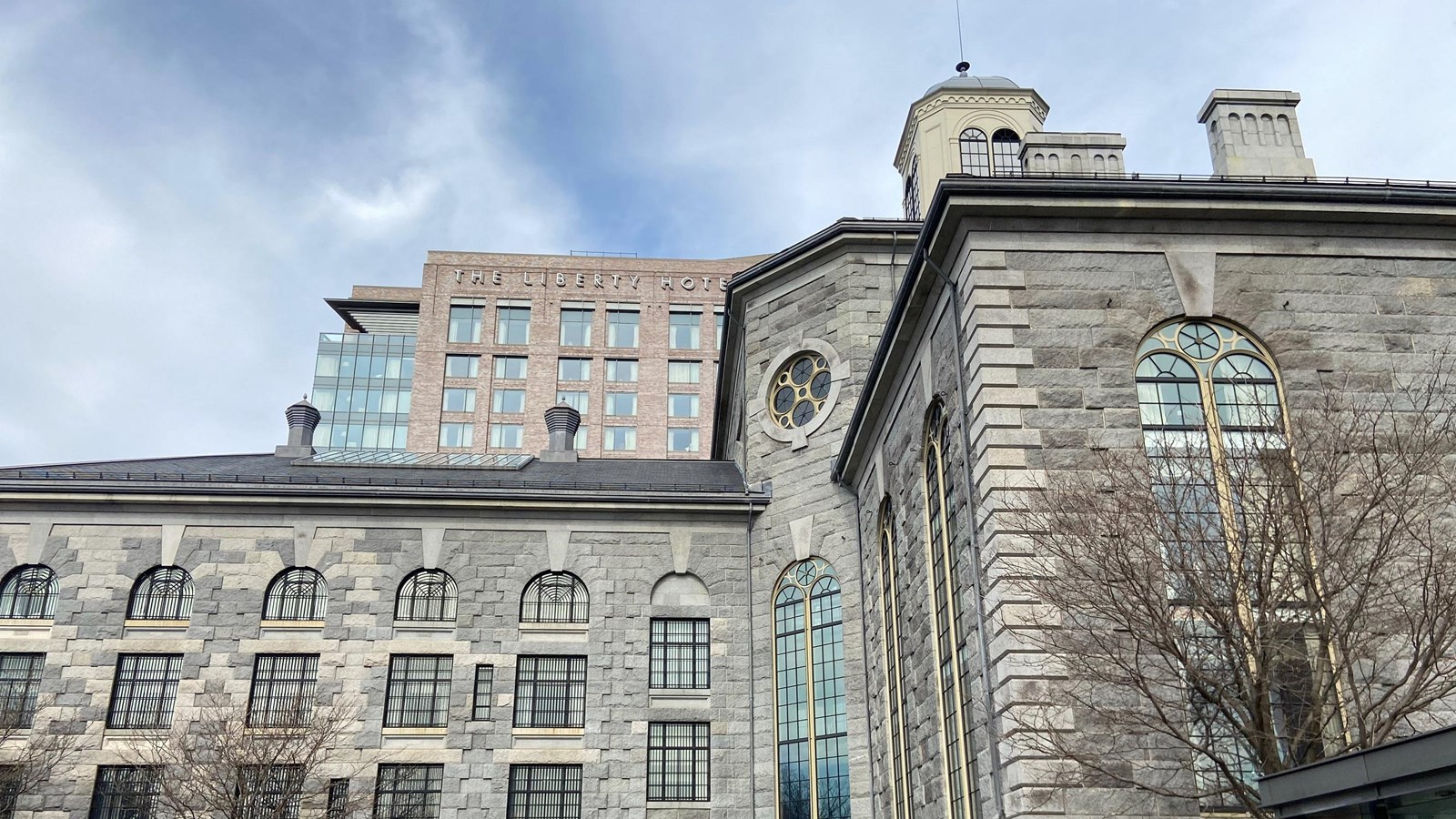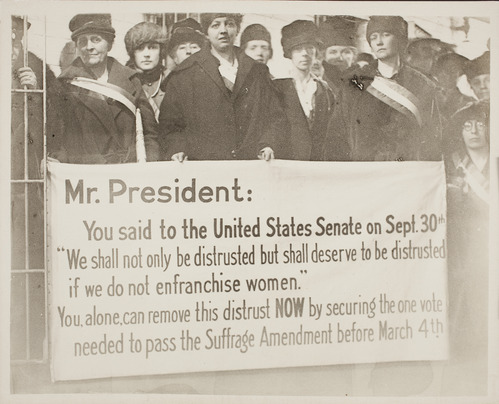Last updated: January 22, 2024
Place
Charles Street Jail

NPS Photo/Woods
After refusing to pay the $5 fine for protesting Woodrow Wilson's visit to Boston in February 1919, 16 members of the National Woman's Party received a sentence of eight days at Charles Street Jail. Accounts provide mixed details on the conditions of the jail and the perspectives of the imprisoned women. The Boston City Council had declared Charles Street Jail "an unfit, inhumane structure" in 1918, yet reporters who visited the conditions of the women's section claimed, "on every side were clean white walls and high windows...the whole place was scrupulously tidy."1 Some suffragists complained of the lack of access to proper food, clothing, and facilities, while others gave positive reviews and "looked extremely cheerful."2
Despite the eight-day sentence, authorities slowly released the women, sometimes against their will, over the course of the week, when family members or anonymous citizens paid their fines. None of the sentenced suffragists completed her full sentence. These principled women have become known as the last suffragists arrested for the cause of women's suffrage in the United States.3
For more information about these protests, please visit the pages "MA Branch of the National Woman's Party" and "Pemberton Square Courthouse."

Suffragists in Boston protesting President Wilson, possibly outside the Charles Street Jail. (Credit: Courtesy of Historic New England.)
Footnotes:
- David Arnold, “Locking Up Charles Street Jail’s Colorful Past,” The Boston Globe, June 18, 1991; James J. Kenneally, “‘I Want to Go to Jail’: The Woman’s Party Reception for President Wilson in Boston, 1919,” Historical Journal of Massachusetts 45, no. 1 (Winter 2017): 103-134.
- “Militants Think Their Jail Treatment ‘Lovely,’” The Boston Globe, February 27, 1919. Also see Kenneally’s “‘I Want to Go to Jail’” for additional description of their jail experience.
- Kenneally, “‘I Want to Go to Jail,’” 103-134.
